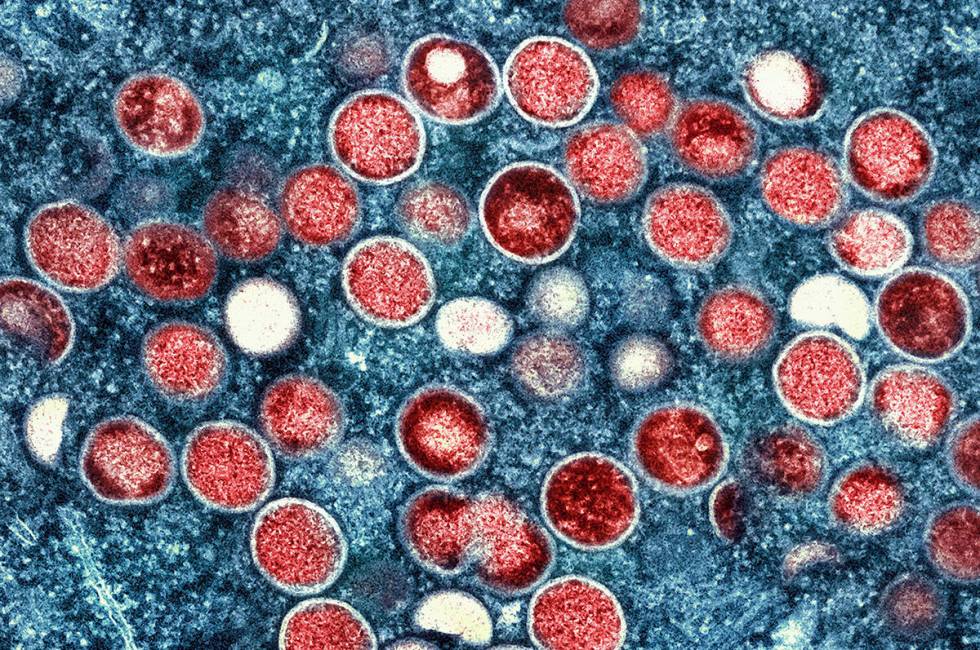More monkeypox cases expected for Clark County

Clark County can expect to see more cases of the once-rare monkeypox virus in the weeks ahead, even as the rate of new cases appears to be declining, officials said this week.
The total number of confirmed and suspected cases of monkeypox in Clark County climbed in the past week to 250 from 229, an increase of 21 cases. At their peak in mid-August, cases increased by as much as 34 in one week.
“We are confident that we’re seeing signs of the outbreak getting under control,” said Cassius Lockett, director of disease surveillance and control for the Southern Nevada Health District.
“However, we need more vaccinations,” he said, as vaccine remains in limited supply. “And we need more studies on the efficacy of the vaccine to help us make that determination.”
Research continues on the effectiveness of the Jynneos vaccine — developed to prevent smallpox, a more severe but related virus — in the current global outbreaks of monkeypox.
Wastewater surveillance shows that levels of the monkeypox virus have decreased at wastewater treatment plants since two weeks ago, said Edwin Oh, an associate professor at UNLV’s Kirk Kerkorian School of Medicine.
Surveillance continues to detect monkeypox viral DNA in wastewater from sewer lines that service part of the Strip. Monkeypox “is still very much circulating in our community,” Oh said.
Oh and other researchers study wastewater to detect early indications of disease trends. People infected with monkeypox excrete virus DNA through skin lesions, saliva, feces and urine, which enters wastewater via shower drains, sinks and toilets. Its presence poses no threat to the drinking water supply, which is treated to kill viruses.
Monkeypox is typically spread through close skin-to-skin contact, especially sex. It has largely been spreading within the social networks of men who have sex with men. However, anyone can become infected.
The risk of monkeypox to the general public remains low, Lockett said.
The most recent data from the health district shows that 97 percent of cases so far in Clark County have been in men, 2 percent in women, and 1 percent in transgender or gender non-conforming individuals.
Eighty-four percent have identified as LGBTQ and 7 percent identify as heterosexual. The sexual orientation of the remaining 9 percent is unknown.
Eighty-seven percent of cases have been in people ages 25 to 54. There’s been at least one case in a juvenile under 18 and one case in a senior over the age of 64, according to the data.
Across the U.S., monkeypox has been disproportionately affecting Black and Hispanic/Latino people, according to the Centers for Disease Control and Prevention.
Health district data shows that in Clark County, 34 percent of cases have been in Latinos/Hispanics, 26 percent in Blacks/African Americans and 22 percent in whites. The remaining 18 percent of cases are spread across Asian, Native Hawaiian or Pacific Islander, American Indian or Alaska Native, and multiracial ethnicities.
The health district is administering vaccine to high-risk populations, including gay and bisexual men who have had multiple sex partners in the past 14 days or who have HIV. The LGBTQ Center of Southern Nevada and the Huntridge Family Clinic also are administering the vaccine.
During the current monkeypox outbreak in the U.S., 38 percent of those diagnosed have also had HIV, according to the CDC. The most severe cases of monkeypox have been in people with HIV or compromised immune systems.
Although monkeypox is rarely fatal, its characteristic lesions can be excruciatingly painful and lead to scarring.
There have been more than 25,600 cases of monkeypox in the U.S. since May. One death has been reported.
Contact Mary Hynes at mhynes@reviewjournal.com or 702-383-0336. Follow @MaryHynes1 on Twitter.